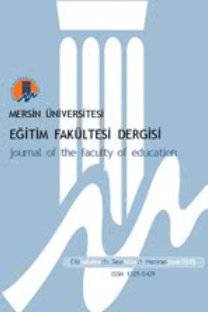The Relationship Between Attitude and Perceived Self Efficacy of Pre-service English Teachers on Computer-Assisted Instruction
The main purpose of this study was to determine the relationship between attitude and perceived self-efficacy of pre-service English teachers on computer-assisted instruction. Besides, the attitude and perceived self-efficacy of pre-service English teachers on computer-assisted instruction according to their gender and class level were also examined within the context of this study. Correlational research model was conducted in the process of the study. The research was conducted with 195 pre-service English teachers studying English Language Teaching at the education faculties of Anadolu University and Eskisehir Osmangazi University in 2014-2015 academic year. Convenience sampling method was used to form the participants of the study. The data of the study was collected by using “The Attitude Scale Toward Making Computer-Supported Education” and “Self-efficacy Scale in relation to Computer-Based Education” developed by Arslan (2006). The findings of the study showed that there was a significant positive relation at a medium level between the attitude and perceived self-efficacy of the participants on computer assisted instruction. It was also revealed that pre-service English teachers had positive attitudes toward computer-assisted instruction and they showed high self-efficacy on the subject. Moreover, their attitude and perceived self-efficacy did not change according to gender and class level variables. Key words: pre-service English teacher, attitude, self-efficacy, computer assisted instruction.
- Yayın Aralığı: Yılda 3 Sayı
- Başlangıç: 2005
- Yayıncı: Mersin Üniversitesi Eğitim Fakültesi
Sayıdaki Diğer Makaleler
Sosyal Bilgiler Öğretmen Adayları ile Yürütülen “Seçim” Odaklı Bir Medya Okuryazarlığı Uygulaması
Sınıf Öğretmeni Adaylarının Epistemolojik İnançları ile Sözde-Bilimsel İnançları
Kadın ve Erkek Eğitim Denetmenlerinin Kişisel ve Mesleki Özellikleri
Halil KAYADUMAN, Ömer DELİALİOĞLU
Investigating Pre-Service English Teachers' Stages of Concern Toward Using Wiki
Ömer DELİALİOĞLU, Halil KAYADUMAN
Definition of a Learning Object from Perspectives of In Service Teachers (Case of Duzce Province)
